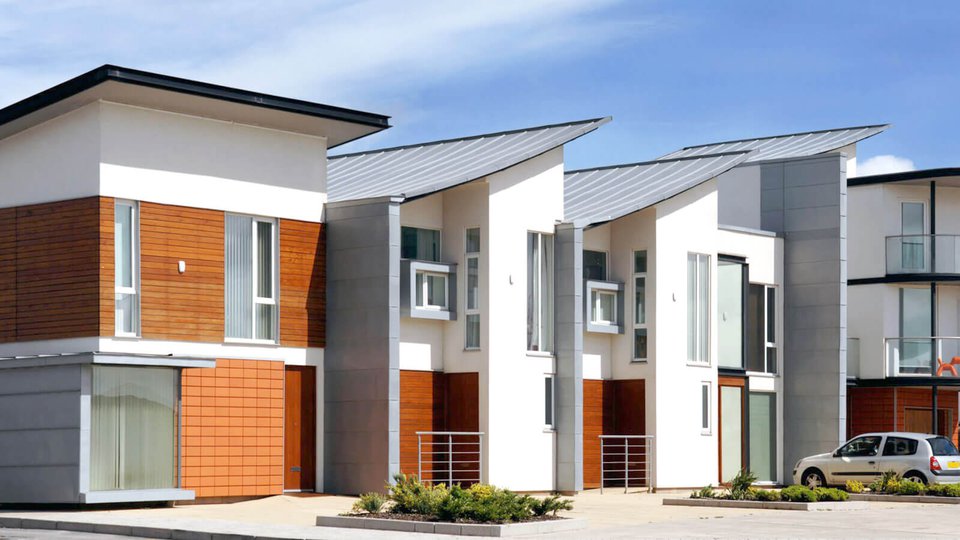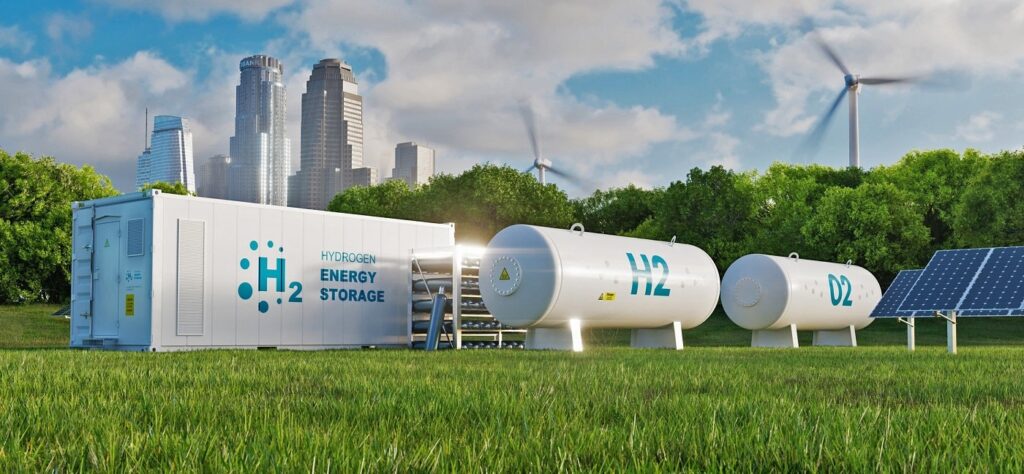The United Kingdom is taking the lead in the development of technologies and construction principles aimed at creating a more sustainable built environment.
Greener buildings
The UK has established a target to achieve net-zero carbon emissions by 2050. Essential to meeting this goal is the drive to enhance the energy efficiency of buildings through modern construction techniques and the adoption of circular economy principles, while also transitioning away from fossil-fuel boilers. This transformation is being propelled by the C02nstruct Zero program, which is a collaborative effort spanning various industries. This initiative’s primary objective is to eliminate carbon emissions from the UK’s construction sector, offering a unified action plan, well-defined targets, and an ambitious vision for the industry’s sustainable future.

Opportunity highlights
The United Kingdom offers an extensive range of opportunities in both industrial and residential construction markets, encompassing new builds and retrofit projects, with a significant emphasis on sustainable construction and heating solutions. In the fourth quarter of 2019, the UK ranked as the second-largest construction output in Europe, underlining its importance in this sector.
Heat Networks
The heat network project pipeline is estimated at £1.2 billion and continues to grow. This presents a substantial early-stage investment prospect across various facets, including distribution, generation, storage, controls, and customer interfaces. For instance, Bristol, the most populous city in southwestern England, is installing an underground network of pipes to deliver affordable, low-carbon heat and energy as part of its commitment to achieving carbon neutrality.
Heat Pumps
As part of the UK government’s commitment to cleaner energy, the aim is to install 600,000 heat pumps annually by 2028. The UK is actively working to expand its manufacturing base in this technology, with companies like Mitsubishi Electric leading the way through their Ecodan residential heating system manufacturing plant in Livingston, Scotland. These heat pumps provide energy-efficient hot water and heating for radiators and underfloor heating.
Sustainable Design and Construction
By adopting circular economy principles, incorporating sustainable materials in construction, and harnessing digital technologies, the construction sector is making significant contributions to the UK’s goal of achieving net-zero carbon emissions by 2050.
An example of sustainable design and construction opportunities is the Timber Square net-zero carbon scheme in London. It aims to become the largest commercial development in the UK to utilize cross-laminated timber. Timber Square’s use of innovative construction techniques and environmentally ethical materials serves as a remarkable milestone for the broader construction community and sustainable development.
Commercial maturity
As part of the UK government’s £500 million Heat Networks Transformation Programme, the Green Heat Network Fund (GHNF) is actively addressing significant obstacles to the decarbonization of heat networks. This initiative is crucial in the country’s efforts to transition to more sustainable and environmentally friendly heating systems.
The growing role of heat pumps in decarbonizing the UK’s heating sector is creating notable opportunities for various segments of the industry. These opportunities extend to heat pump manufacturers and innovators in areas such as biomass boiler systems, combined heat and power systems, hydrogen boiler systems, and solar thermal panel manufacturing. The shift towards greener heating solutions opens up a promising landscape for technology and innovation in this domain.
UK assets
The UK government has ambitious plans for heat networks, with the aim of having them supply approximately one-fifth of the country’s heat by 2050. To achieve this target, early investment opportunities have been identified in various regions:
North East and Tees Valley
This area represents a pioneering low-carbon cluster where over 20 potential heat network schemes have already been identified. The estimated total value of these projects is £280 million. The region offers significant potential for utilizing natural resources and implementing low-carbon heat technologies.
Manchester
A district heat network (DHN) project in Manchester has secured £14.6 million in funding and is on track to become one of the largest and most diverse decentralized energy networks in the UK. This project will provide decarbonized, cost-effective heating and electricity to stakeholders, contributing to the UK’s heat network expansion goals.
R&D capability
The UK is committed to fostering innovation and sustainability in the energy and construction sectors, with several initiatives and funds in place to support this transition:
A £4 million fund has been established to invest in projects aimed at decarbonizing, digitizing, and decentralizing energy. The goal is to facilitate a sustainable transition to cleaner energy sources.
Eleven projects have been initiated to decarbonize heating and cooling systems, supported by a £14.6 million investment from the Engineering and Physical Sciences Research Council (EPSRC) and the Natural Environment Research Council (NERC). These projects aim to drive innovation in this critical area.
An investment of £170 million has been allocated to accelerate the shift in the construction sector towards sustainable manufacturing and digital processes, emphasizing value outcomes. This funding supports the UK Research and Innovation (UKRI) effort to promote innovation in construction.
The Construction Innovation Hub has been assigned the task of transforming the way buildings and infrastructure are designed, manufactured, integrated, and connected within the built environment. This initiative is poised to drive innovation and sustainable practices in construction and the broader built environment.
Business and government support
The UK is actively pursuing strategies and initiatives to support the decarbonization of its heating and buildings sector in line with its net-zero carbon target. The forthcoming Heat and Buildings Strategy will outline decarbonization plans aimed at helping the UK achieve its net-zero emissions goal.
This strategy will provide a comprehensive roadmap for reducing carbon emissions in the heating and building sectors. The UK government plans to release a market framework for heat networks in 2022. The objective is to stimulate increased private sector investment in heat networks, thereby promoting sustainable and low-carbon heating solutions. The UK is working to implement the Future Homes Standard, which will set forth guidelines for constructing energy-efficient and low-carbon heating systems in new buildings.
This approach is designed to future-proof new construction projects and reduce the need for costly retrofits. The UK will engage in consultations to establish higher standards for non-domestic buildings, aiming to ensure that new structures exhibit high energy efficiency and utilize low-carbon heating technologies. The UKGBC has introduced a framework definition for net-zero carbon buildings, simplifying the process for companies to participate in the construction of net-zero carbon structures. This framework is a significant step towards encouraging sustainable building practices in the UK.



